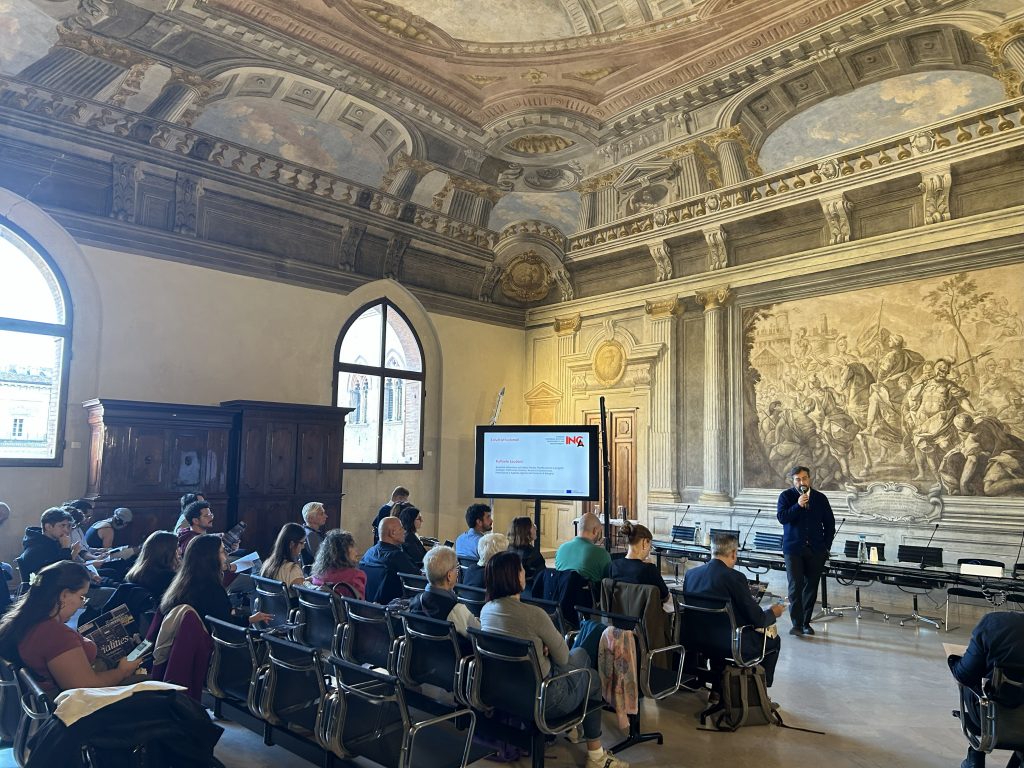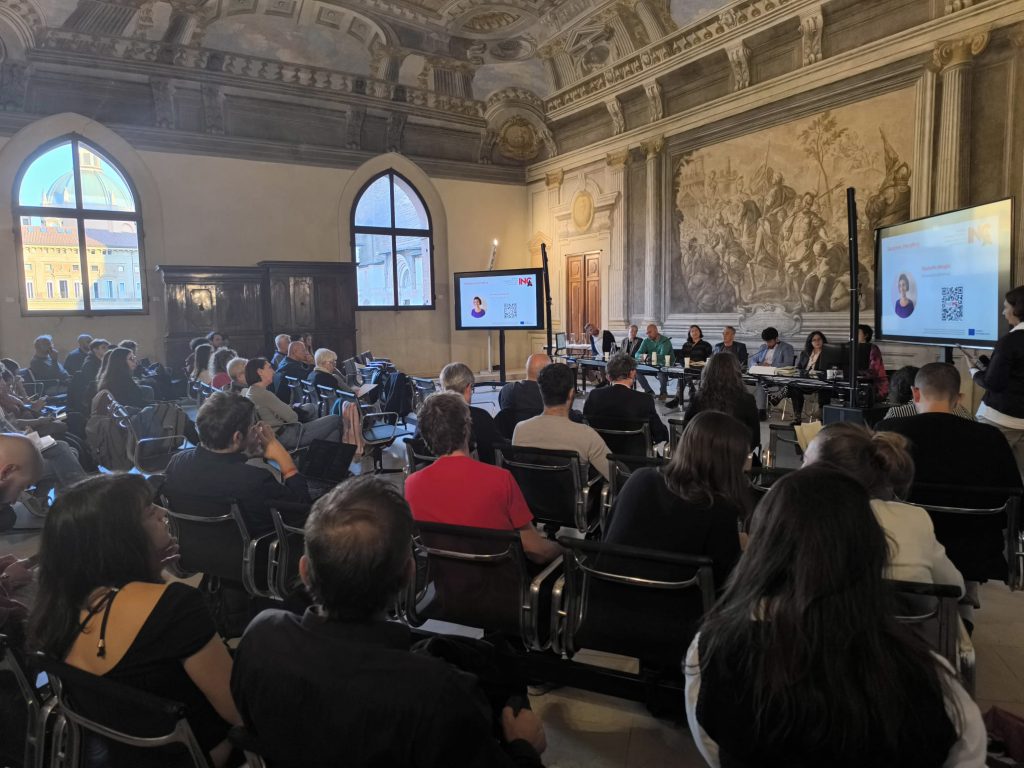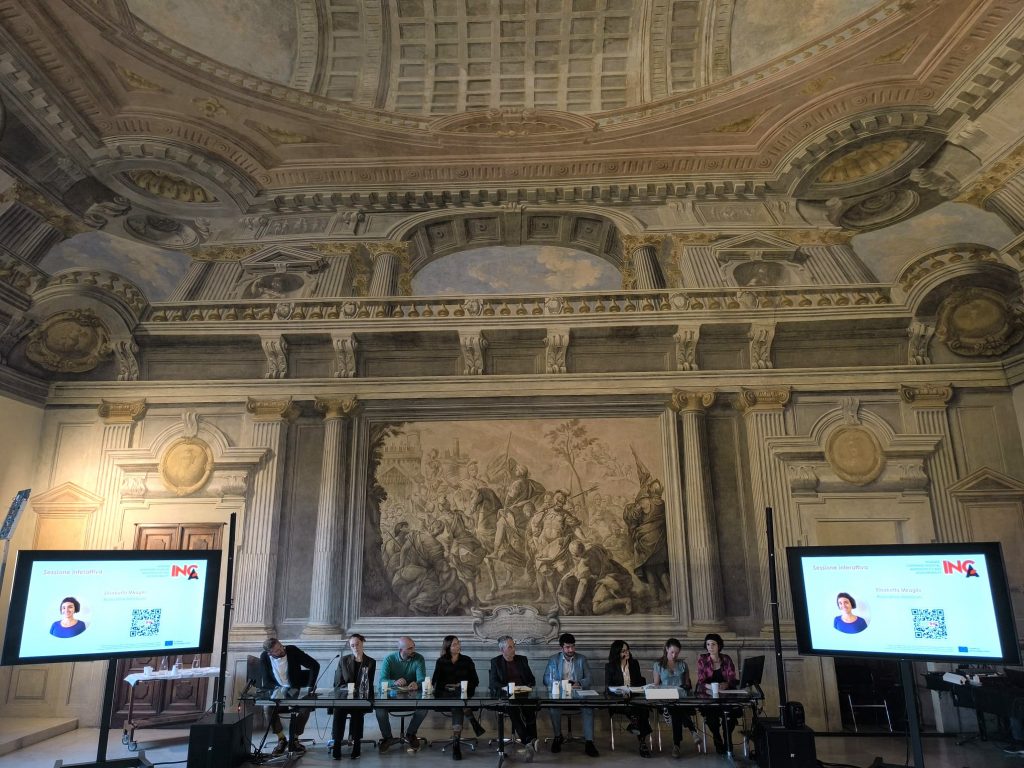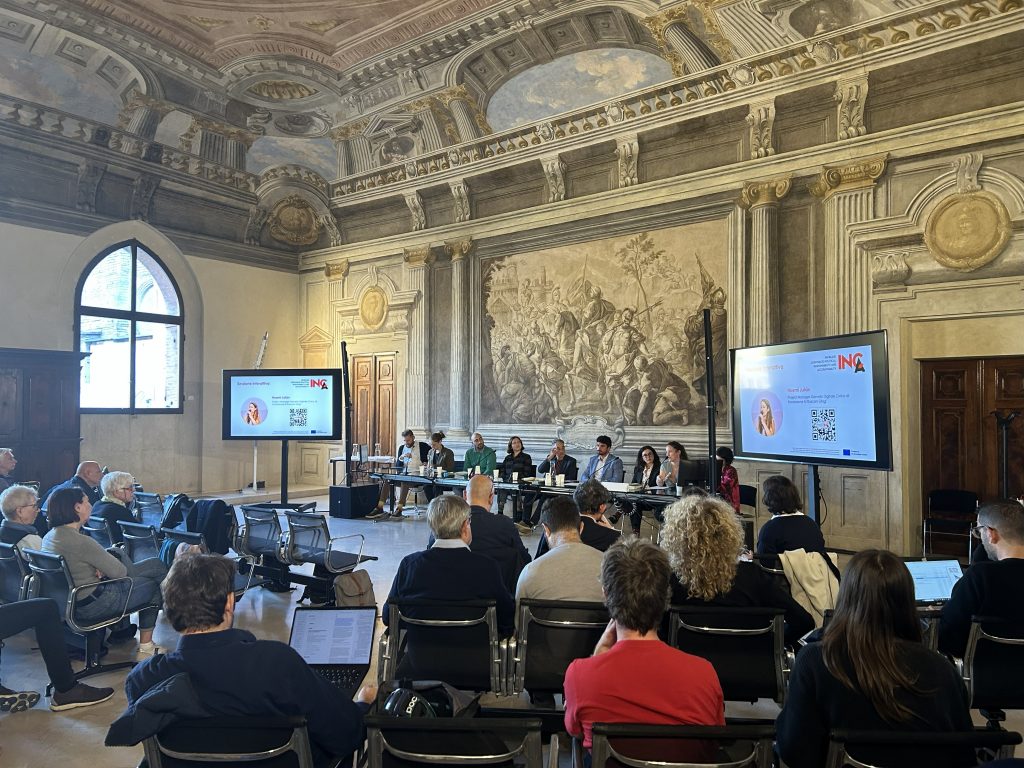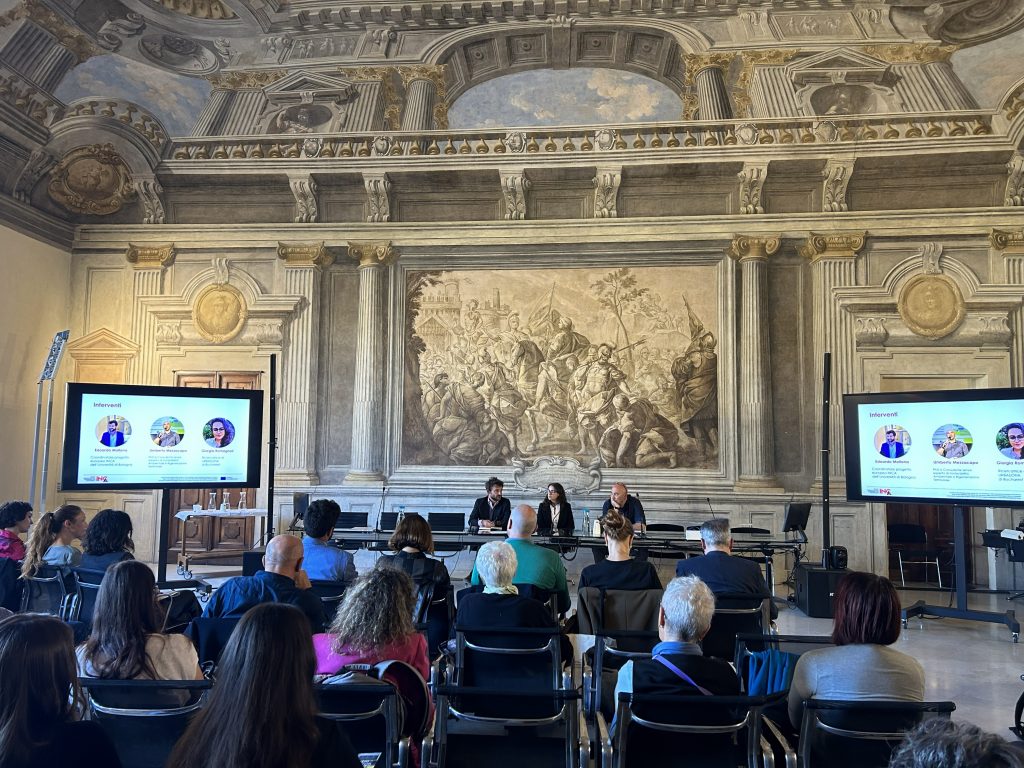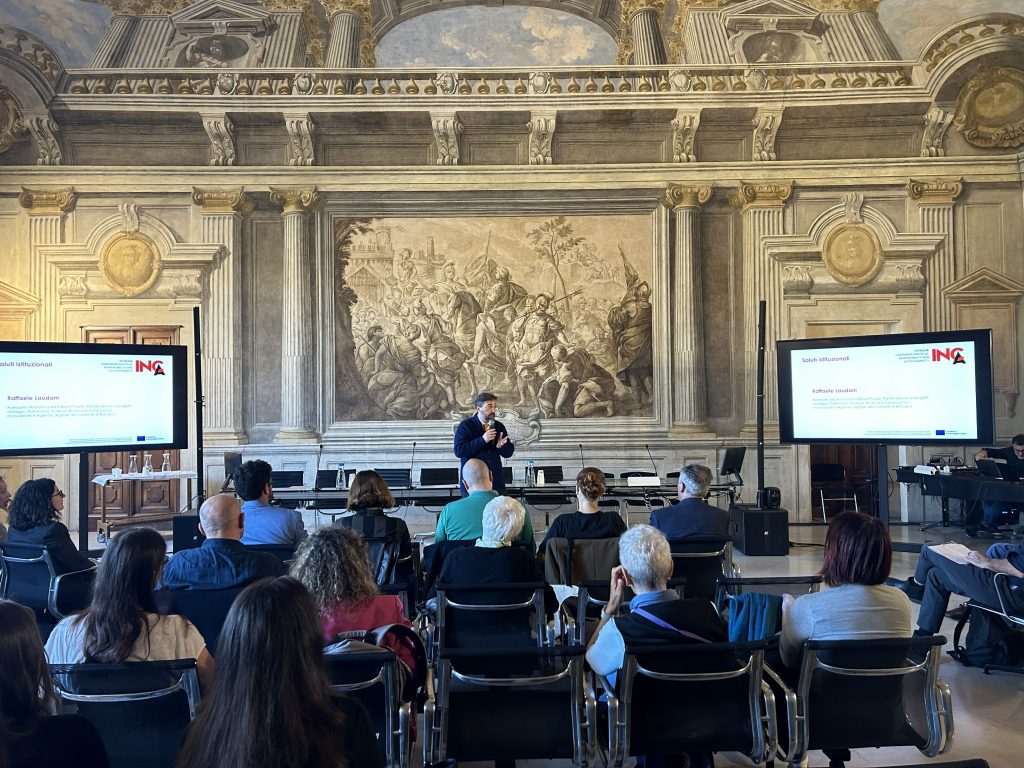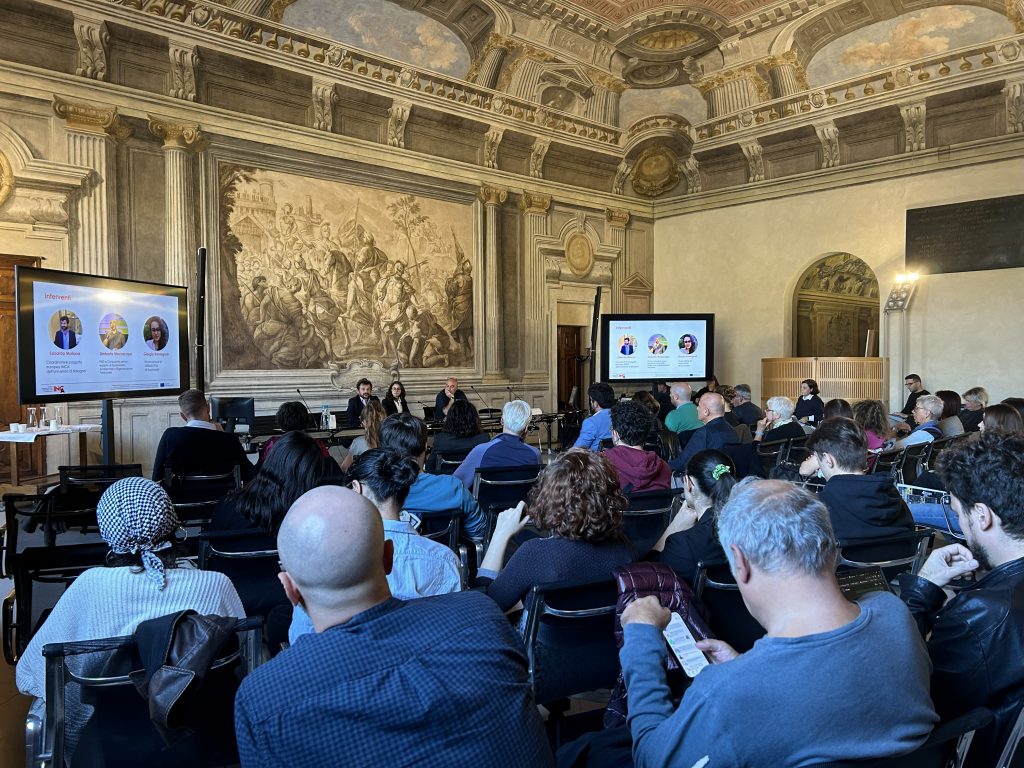
INCA OILs outcomes showcased at final event featuring round table on participatory design of new digital platforms
On October 10, the final event presenting the work of INCA’s Open Innovation Laboratories (OILs) took place at Sala Anziani, Palazzo d’Accursio in Bologna (Italy). The event marked the culmination of activities carried out in the OILs in Bologna, Barcelona, and Bucharest, showcasing the insights and outputs generated over the past months.
The meeting consisted of a round table titled “Participatory design of new digital platforms for the city: guidelines, ethical best practices, and a comparison of alternatives”, which brought together institutions, researchers, companies, and civil society actors to discuss fairer, more sustainable, and common-good-oriented models of digital innovation.
Moderated by Valentina Bazzarin, an expert in data ethics and co-founder of Period Think Tank, the roundtable opened with institutional greetings from Councillor Raffaele Laudani, who emphasized that the INCA project should be framed within a broader strategic horizon, thus representing an opportunity for reflection and experimentation. In this context, the Councillor presented opportunities and challenges related to the Bologna Technopole and the city’s role as a laboratory for public and participatory innovation.
The first session of the event was dedicated to sharing the experiences gained in the Open Innovation Labs, with contributions from INCA coordinator Edoardo Mollona (University of Bologna) and consortium members Umberto Mezzacapo (Fondazione IU Rusconi Ghigi), and Giorgia Romagnoli (URBASOFIA). The discussion focused on the participatory methodology adopted within the OILs, which connected public and private actors, research centers, companies, trade unions, and citizens, fostering the co-creation of digital models for more inclusive urban governance. This experience demonstrated how engaging heterogeneous local stakeholders can generate virtuous processes of shared innovation and have a tangible impact on the development of new collaboration models.
The interactive session that followed the presentations offered a lively exchange between experts from companies, research institutions, and civic organizations. At this moment, the following experts participated:
- Carmine Arvonio, Founder & CEO of CycloLogica, a company engaged in sustainable logistics;
- Eleonora Barelli, Head of Education and Foresight at the International Foundation Big Data and Artificial Intelligence for Human Development (IFAB), active in education and ethical responsibility in the use of AI;
- Lorenzo Cello, Programme Manager at the Institute of Transport and Logistics (ITL), overseeing European projects focused on mobility and sector innovation;
- Teresa De Martin, Co-founder of So.De – Social Delivery, involved in developing collaborative models for sustainable delivery;
- Alessandro Fanni, CEO and R&D Director at C-Shark, a company active in digital technologies and industrial research;
- Asia Guerreschi, researcher at the University of Ferrara, specializing in circular economy and cooperatives;
- Noemí Julián, Project Manager at Fondazione IU, involved in participatory design and the development of the Civic Digital Twin of Bologna;
- Elisabetta Miraglio, researcher at AlmaVicoo, focusing on cooperative economics and AI with an emphasis on social justice, equitable access, shared responsibility, and democratic participation;
- Andrea Solimene, CEO & Founder of Seedble, a company promoting organizational innovation and digital transformation.
The debate focused on two main themes: on one hand, best practices for alternatives to digital platforms and their real and potential impacts on cities and people; on the other, the definition of governance models and forms of participation capable of promoting these alternatives and generating positive effects on the territory. The reflections highlighted a shared vision of change, recognizing the importance of democratic governance of data and technologies, able to restore agency to citizens and value to local communities.
The event thus marked not only the conclusion of the public program of the exhibition “Data Materialities” but also a new beginning for the debate on the future forms of digital participation. The discussions revealed a shared willingness to continue the participatory path initiated with INCA, imagining new spaces for collaboration and experimentation, also in relation to the development of the Digital Twin of Bologna.
